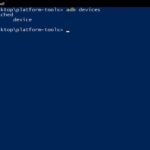Accessing your pilot archives is crucial for reviewing mission data and tracking your progress. This guide provides a step-by-step walkthrough on how to “log in” to your archive database, akin to using an Alldata Log In for vehicle diagnostics, and navigate its contents. We’ll cover accessing the archives, understanding the types of logs available, and provide tips for efficient searching.
Understanding Your Pilot Archives – Your Personal Alldata Log In
Think of your pilot archives as your personal “Alldata log in” for your missions. Just like mechanics use Alldata to access detailed vehicle information, pilots rely on their archive database to review past missions, analyze data, and track their progress. This comprehensive record includes everything from license codes and system logs to video recordings and text data. Accessing this information is essential for mission debriefings, identifying patterns, and improving future performance.
Accessing Your Archives: The First Step in Your Alldata Log In Process
Accessing your pilot archive database is straightforward. From the main menu, select “Edit your pilot info.” Then, navigate down to “Archives.” If using a gamepad, press the “Y” button. Keyboard and mouse users can also access the archives through the same menu navigation. This process mirrors the initial steps of logging into a system like Alldata, granting you access to a wealth of information.
Decoding the Data: Navigating Your Pilot Log Files
Once inside, you’ll find a comprehensive list of logged data, categorized for easy navigation, much like the structured data found within Alldata. These logs are categorized into several types:
-
License Codes: These codes are fundamental identifiers, similar to VIN numbers in Alldata, providing key information about your pilot credentials. Examples include “Raven,” “Thomas Kirk,” and various others.
-
System Logs: These records document significant in-game events, like “One-Sided Engagement” or “The Deserter,” offering insights into mission critical moments.
-
Video Records: Visual documentation of crucial events, ranging from “STEEL HAZE” to “Testing New Components,” providing visual context for analysis. Think of these as your dashcam footage, offering a replay of key moments.
-
Comms Records: Audio logs of various communications, such as “Friendly Comms,” “Rusty’s Encoded Comms,” or “Enforcement Squad Comms,” providing valuable auditory information.
-
Observation Data: Recorded observations of different surveys and environmental analyses, like “Coral Density Survey” or “Wave Mutation Detected,” offering detailed environmental insights.
-
Text Data: Written documents, including “Dolmayan’s Writings” and “Professor Nagai’s Log,” offering valuable textual insights into the game’s lore and mission details.
-
Image Data: Visual data in the form of sketches, like the “STV Sketch” series and “STK Sketch,” providing visual representations of key objects or locations.
Searching Your Archives: Mastering Your Alldata Log In Equivalent
To quickly locate specific information within your vast archive database, use the search function. Press “Ctrl+F” to initiate a keyword search, similar to how you’d search for specific trouble codes within Alldata. Input the relevant keyword associated with the mission or log you’re seeking to quickly pinpoint the required information.
Conclusion: Your Pilot Archives – An Essential Tool for Success
Mastering your pilot archives, your personal equivalent of an Alldata log in, is crucial for any pilot seeking to excel. By understanding how to access, navigate, and search this comprehensive database, you can effectively review past missions, analyze critical data, and ultimately improve your performance. Regularly reviewing your archive data is akin to a mechanic regularly using Alldata for diagnostics, ensuring you have the information necessary for success.

